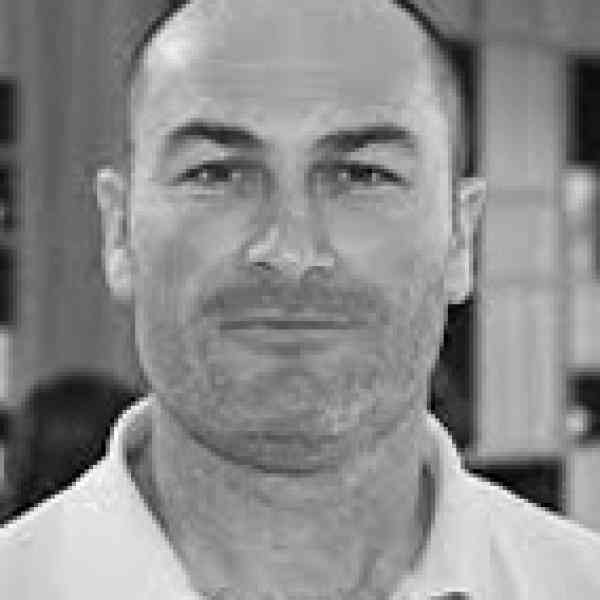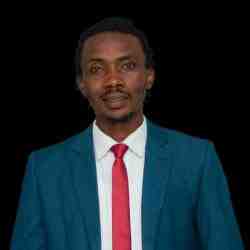Introduction
In response to the increasing industrialization of dairy farming in France, Fabrice is developing an entrepreneurial-driven small-scale farming alternative that reinvents the role of farmers keeps them in the agricultural and economic landscape. Through new modes of production and distribution that respect the environment and offer healthy milk, he positions dairy producers as wellness partners and reconnects them with consumers. This creates a viable subsidy-free economic model to maintain a collapsing industry.
The New Idea
According to the current trend - with a growing number of industrial farms, the number of individual dairy farms in France will decrease from 65,000 to 25,000 in the next 5 years. Furthermore, 5,000 will remain family-owned farms. Instead of focusing on the amount of milk produced, Fabrice is successfully investing in the characteristics of local milk – taste, quality, nutrients, and experience of how the milk is produced – to create an unprecedented alternative in the milk market. He believes this is an answer to the demand in the market as well as a way to enable small dairy farmers an opportunity to build their economic independence and sustainability. Fabrice is anchoring his model on the massive consumption trend around local and organic products (essentially for vegetables and fruits) that has not been able to impact the dairy industry. This is due to one major obstacle: the necessary milk transformation process from a raw to a
pasteurized product. Fabrice’s idea of small entrepreneurial transformation factories, added with
lobbying efforts, free up dairy producers from five-year contracts with the few industrial factories that have always collected, transformed and sold the milk produced by thousands of small farmers. This enables these farmers to have an unprecedented opportunity to fix a price above the production cost and ensure the economic sustainability of their farms.
Pooling together farmers, investors, distributors and citizens from the same region, Fabrice creates local dairy projects that reposition the role of dairy farmers as key actors of their industry. From simple dairy farmers, they are empowered to become milk entrepreneurs and changemakers in the food-producing industry. They are engaged in every step to build up a sustainable alternative for the future of their farms: defining new norms for quality milk production, investing in self-owned transformation solutions, contributing to marketing strategies, building partnerships with distributors and developing sales skills to promote the
products directly to the consumers. By making dairy farming profitable, attractive and subsidy-free, Fabrice transforms our perception of farmers and gives family-owned farming a new chance to survive and play a valuable role in economic and social development of rural regions.
The Problem
The dairy sector has gone through the same evolutions as the agricultural sector in France. Agro-industrial farms benefit from large European subsidies. As a result, the drop in individual farms have gone from 120,000 to 65,000 in the past 15 years. This rise of agro-industrial farms has impacted mostly small scale and family farms. Furthermore, the development of industrial production methods have negatively impacted the environment - denaturalized food for the cows, more methane emissions, poor quality of soil and a poorer quality of milk to name a few examples. At the same time, new models for local and organic small-scale farming have emerged to enable
direct selling from producers to consumers (e.g.: “La Ruche qui Dit Oui”, AMAP…), this is
essentially for fruits and vegetables. Since consumers do not have direct access to producers for
milk, local products are in demand. Food distributors are now prioritizing consumers’ demands
of knowing where their food comes from and how it is produced. Over the last few decades, the living conditions of farmers have become harder with constant losses. Most of the farmers work 13 to 15 hours a day, every day of the week. In 2013, a study by the Ministry of Agriculture has highlighted the great distress in the sector, with an increase in the suicidal rate, especially among the dairy farmers who are confronted with heavy financial difficulties. 1 suicide every 2 days is now happening among this population especially amongst men between 45 and 54 years old. Even if they invest in development, they struggle to survive and cannot afford to pay themselves a decent salary. Consequently, 30% of them have to live with a state aid dedicated to the worst-off (“RSA” – about 500€ per month).The incapacity to maintain a family heritage and pass down their farms to their children is among the major causes of distress. Small-scale family farms are disappearing because of their bad financial situations and the lack of interest by young generations to take over the farms, especially after having seen their parents struggling and discredited. As a result, a phenomenon of rural exodus and desertification of some regions is observed. Schools and hospitals are continuing to close down, leading to severe social and environmental consequences.
The Strategy
Fabrice has structured his idea of local dairy projects around 4 key principles: 1) shared
environmental-friendly production methods and production of healthy milk; 2) investment into and opening of small transformation factories; 3) common marketing efforts to position a new and unique sustainable milk brand; 4) key partnerships with distributors to guarantee access to the market.
The key of the model relies on ambitious investment plans in which farmers become owners of the whole value chain. From production to transformation and sales they can overcome their
dependence to become industrial milk transformers and make a living. To open the first transformation factory in Loire-Atlantique, Fabrice and 25 farmers have fundraised eight million euros through private and public partnerships, crowdfunding and an initial investment of 25,000 euros by each farmer. Despite the fact that 30% of the capital is owned by private and public investors, the factory is functioning as a cooperative with a founding principle that control will always be in the hands of the farmers. The factory has the capacity to collect and transform 22 million liters of milk per year.
To promote their milk and ensure access to the market, Fabrice and his group of farmers have developed a trust-based network with known by consumers as “From Us to You” where they are
fully transparent about the production modes of the milk. With a QR code, a consumer can know exactly from which farm her/his milk is from. Demonstrating how the project attracts consumers, Fabrice has successfully built key partnerships with large retailers that see how the project attracts consumers. Since milk is a mass-market product, Fabrice has signed contracts with 250 regional supermarkets so far. 500 are ready to integrate the product into their shelves when the production will increase. At the same time, Fabrice is exploring BtoB opportunities by becoming the first local sustainable milk provider for school restaurants, hospitals and high-quality industrial bakeries. Fabrice’s key factor of success is the change of mindset of farmers who have always been simple producers. Fabrice has structured a process to trigger and accompany a cultural change in their daily lives, to make them become active players in the food industry, ambassadors of good milk and pioneers of an alternative sustainable dairy farming model. Based on his personal experience of change with his own farm, Fabrice is trusted by the community of farmers and is accompanying a large system-change. Thanks to the support of a network of partners and experts, farmers transitioning between 6 months to 1 year are being trained to develop new skills on entrepreneurship, project management, marketing and sales, finances and industrial know-how. They work on their own business plan to transform their production methods while taking responsibilities in the cooperative through 8 committees (finance, recruitment, sales, marketing, talent development and fundraising). Each committee is working on specific activities to develop the skills the whole group needs to succeed. Relying on his first pilot, Fabrice is now showing the model to small dairy farmers in other regions, giving them the courage, confidence and skills to be part of the economy. He makes it easy for others to follow his path by providing knowledge on organic production methods, financial and organizational arrangements, meeting political representatives and potential investors, and knowledge of industrial processes. Immediate results can be observed on living conditions as farmers can triple their salary right from the start (about 2000€ a month versus 600€ today) and hire someone to help them with their daily operations. Today, groups of farmers
are launching the model in four French regions (Aquitaine, PACA, Bretagne and Auvergne). Fabrice is creating conditions for large-scale impact. Now gaining recognition and support from the Ministry of Agriculture and the Ministry of Economy, he is creating a new jurisprudence at a national level to obtain that farmers can terminate their contracts in case of the launch of a personal project. He also works with the Public Bank of Investment to give the farmers the necessary means to buy their initial shares in the cooperative (initial investment of 25,000€).
The Person
Son and grandson of dairy farmers, Fabrice is well aware of the difficulties in this sector. He shifted away from his initial professional career to work in the agricultural sector. After a key meeting in 1992 with an agronomist who explained to him the importance of Omega 3 in the diet, he became a salesman for a cattle organic feeding company and started to raise awareness about sustainable practices in agriculture. In 2005, after a serious car accident, he decided to leave his job on the road to get closer to his family. He took over the family farm with his brother, with a strong ambition to transform it, and drop industrial processes for sustainable production methods. Right from the start, Fabrice had a clear vision of what he didn’t want as a farmer. During his childhood and then as a salesman in the agricultural field, he saw his parents and most of the farmers live a life full of sacrifices, constantly confronted with financial difficulties and isolation. He also saw the pressure from the agro-industry, with a progressive deterioration of living conditions and strong cultural barriers to be able to change. Using the lessons learnt from his grassroots work, as well as his personal successes to radically change, he has progressively imagined and built up the relevant support to set in motion and accompany farmers in reinventing their role in society. His outrage at the critical situations of many of the farmers he knew, motivated him to volunteer as a communication manager for the National Association of Independent dairy farmers (APLI), while running his own farm. This experience helped when he led a strong campaign to raise awareness of citizens and political representatives in 2009. Hundreds of dairy farmers came to Paris on their tractors and emptied liters of milk in the street – milk that was sold at a loss because of the low purchase price by industrial players. Despite the high media exposure of this action, the negotiations on the milk purchase price failed and Fabrice decided to develop an alternative solution directly on the field for small-scale dairy farmers. The idea of his initiative was born and he started to engage farmers, investors, distributors and citizens. Previous experiences have demonstrated Fabrice’s strong capacity to lead projects to scale –especially with a local music festival that became a famous national gathering, with a half a
million budget. With “Directly from the dairy farmers”, his entrepreneurial determination and
sense of empathy have enabled him to engage key stakeholders at various levels, from farmers to Ministers with a focus on a rapid scale up.




